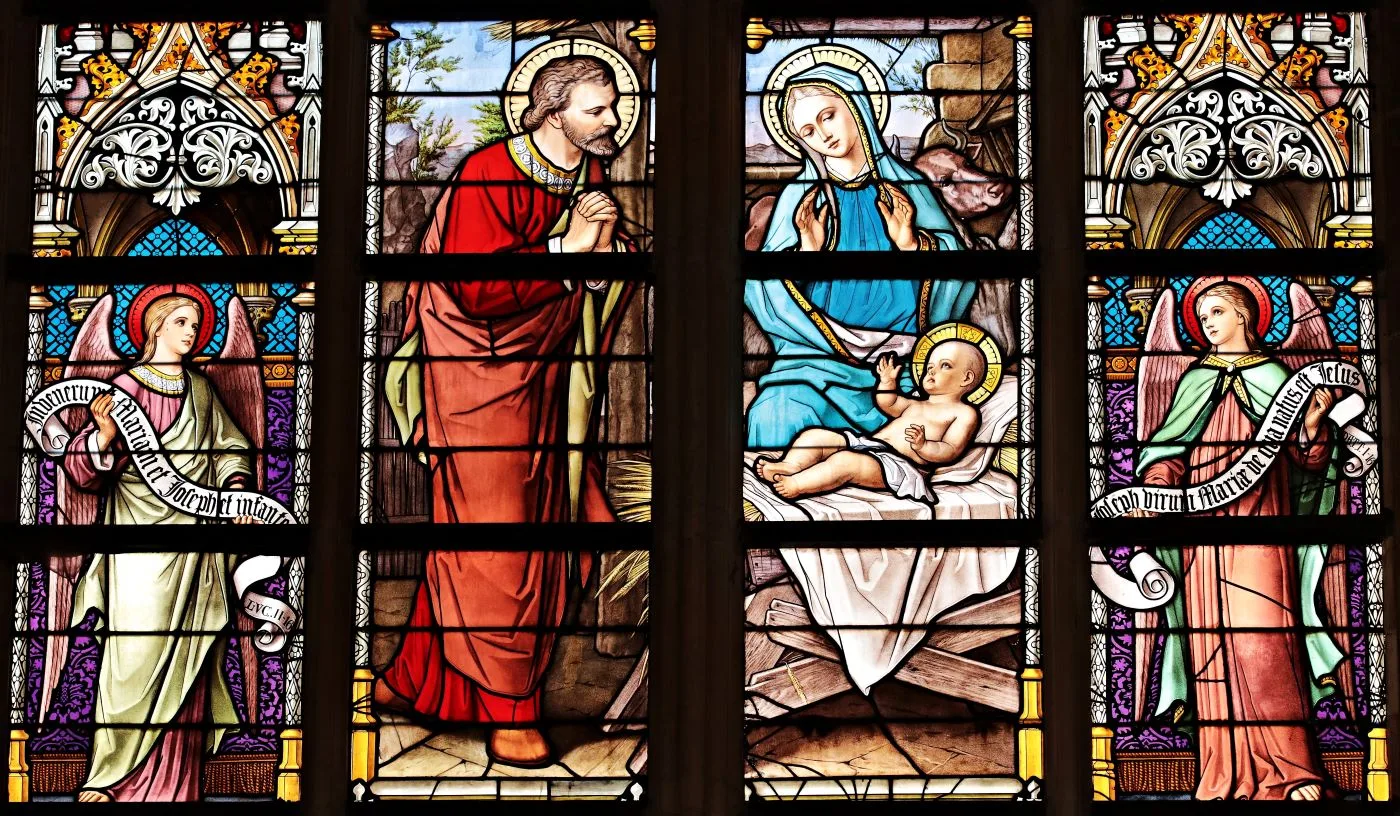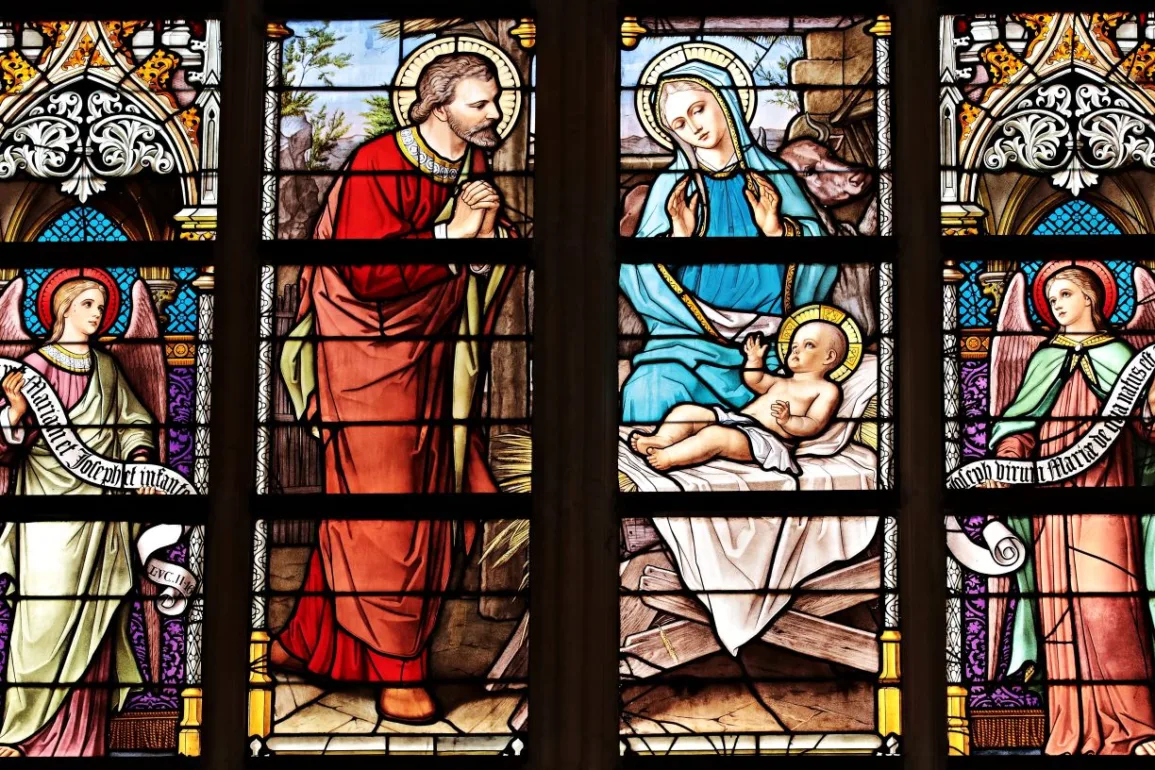
Christians in America have gotten used to being on the defensive. Not only are many of the moral principles that we hold sacred openly trampled in the media, the public square, or even the White House lawn, but Christians sometimes find themselves blamed for quite nearly all the evil in the world. Some of the charges lobbed our way are familiar ones, dating back centuries: Christians are killjoys and bigots, responsible for oppressing religious minorities and persecuting anyone who didn’t fit their mold—Exhibit A being the Salem witch trials. Others are of newer vintage: Christians, we are told, have taken the lead in purveying racism and xenophobia, and the pages of American history are littered with the destruction they have visited upon Native Americans, African Americans, and immigrants.
Some Christians have responded by endorsing these accusations with unseemly gusto, calling on their co-religionists to join them in self-lacerating “lament,” and hoping that profuse apologies to progressive advocates will avert these avenging angels from their own doorsteps. Others have responded by meeting resentment with resentment: if progressive elites are going to tell white Christians all the ways they have victimized others, then white Christians are going to stake their own claim to victimhood status.
Thankfully there is a third, more promising route: meet bad history with good history, and demonstrate that many of the moral triumphs that progressives take for granted are in fact the legacy of Christianity alone. Perhaps the most powerful recent such effort was Tom Holland’s Dominion: How the Christian Revolution Remade the World, demonstrating how basic Christian values like the sanctity of human life, the virtue of compassion, and the equality of all classes and races have become so deeply ingrained that we no longer even recognize their Christian provenance. Mark David Hall’s new book, Proclaim Liberty Throughout All the Land: How Christianity Has Advanced Freedom and Equality for All Americans, marks another important contribution to this critical conversation. Although lacking the grand narrative sweep of Holland’s work, Hall does us the favor of focusing on the American experience, rebutting the false charges of the 1619 Project and similar polemics, and setting the record straight regarding the political and legal legacy of Christianity in America.
Such projects inevitably require delicacy. While it is true that many modern progressive values grew out of once-Christian soil, it is also true that those values have been warped and distorted in the process. It will not quite work to insist that Christians have been best friends with liberty and equality over the centuries. Christians have not defined those terms in quite the same way progressives now do. There is some risk that in attempting to plead Christianity’s case in the twenty-first century, we will be tempted to stretch the fabric of the Christian truths to fit an alien frame. Hall’s otherwise sterling book is not entirely immune to this objection, but let me first summarize its valuable contributions.
Correcting the Record
Proclaim Liberty Throughout the Land can be divided into two main sections. In the first, spanning Chapters 1–4, Hall moves through the first 250 years of American history (roughly 1620 to 1870), tackling a series of common misunderstandings or misrepresentations of Christianity’s role in American life. Chapter 1 starts by setting the record straight about the New England Puritans. Far from being killjoys or tyrannical theocrats, they were in fact far ahead of most of their contemporaries in the leniency of their criminal law, their embrace of religious toleration, and their promotion of education for men and women alike.
In Chapter 2, Hall picks a fight with fellow evangelical historians over whether American patriots were right to take up arms against Great Britain in the Revolutionary War. According to one common narrative, their faith could never have sanctioned such an act of rebellion, and so they turned instead to secular Enlightenment ideas of “the rights of man,” without which American independence would never have been conceivable. Hall demonstrates that, on the contrary, the Founders drew consciously and explicitly on a long tradition of Protestant resistance theory dating back to the Reformation era itself. While I think he goes too far in claiming that most reformed Christians sanctioned the idea of a popular rebellion led by private citizens, this claim is hardly necessary to sustain his larger case, for the American Revolution was not undertaken by private citizens but by state legislatures (what Protestant resistance theory called “lesser magistrates”).
Chapters 3 and 4 tackle the all-important question of slavery. Today, a dominant cultural narrative seeks to fix the primary guilt for this grave evil on Christianity, but it does so only by relying on an equivocation: since America was “a Christian nation” at the time that slavery was entrenched in our society, Christianity bears chief responsibility for this appalling practice. But the real question is whether, in a given historical context, self-consciously Christian people, drawing on self-consciously Christian reasons, were more likely to push back against the evils of their day or to promote those evils. Hall makes a compelling case to show that from the founding era till the Civil War, evangelical Christians tended to take the lead in opposing slavery, as well as related evils like the removal of the Cherokee Indians in the 1830s. Although the details of this complex story will continue to be debated, “anti-racist” activists today must at least acknowledge their considerable debt to the evangelical Christian abolitionists who insisted, in the words of Pennsylvania’s 1780 manumission statute, that “all [humans] are the work of an Almighty Hand.”
Hall’s historical survey in Chapters 1–4 is impressive and compelling. But since the book is intended for popular audiences, one is often left hungry for a bit more detail. Readers may differ, however, on just how rhetorically persuasive it is. Hall’s preferred style is understated and unassuming, which may not be sufficient when trying to correct wildly inaccurate, deeply embedded historical misrepresentations. Sometimes one finds oneself wishing that Hall would throw a few more punches or add a few barbs of sarcasm when dismantling particularly outlandish claims; without such rhetorical vigor, even very strong arguments can come across as defensive special pleading. But this may simply be a question of taste.
The second section of the book, comprising chapters 5–7, is more topically focused, revolving around the application of the First Amendment throughout American history. Here Hall wants to guard against two errors: an aggressively secularist “wall of separation” between church and state that would denude the public realm of any religious symbolism or norms, and an unenlightened form of enforced public orthodoxy that trampled on the rights of religious conscience. In other words, Hall wants to champion the cause of religious liberty as itself the legacy of Christian convictions applied to politics, but also affirm the value of certain forms of public religion, such as displays of the Ten Commandments or crosses on public monuments. He acknowledges that here, evangelical Christians were among their own worst enemies in the late nineteenth and early twentieth centuries, shortsightedly pushing for a strict “separation of church and state” for decades as a way of limiting Roman Catholic influence, and failing to realize that the same principles could be turned against the de facto Protestant establishment they took for granted.
Unresolved Tensions
While I appreciate Hall’s attempt to champion both public religion and religious liberty, I do worry that his argument here is bedeviled by unresolved tensions. After all, there is a reason why public religion was largely thrown by the wayside once the courts incorporated the First Amendment to apply to the states following World War II. If a state uses the force of law or public funds to promote a given religious practice or norm (such as school prayer or monogamy), some individual who opposes the norm is apt to protest that his religious liberty is being violated. That is to say, you cannot have communal religious liberty—the right of a political community to practice or promote a religion—without at least some abridgment of individual religious liberty.
At points in the book, Hall seems to acknowledge as much, stating, “We often think about the freedom of individuals to engage in religious activity, but we must recognize that communities should be free to engage in religious speech, recognize the existence of God, and celebrate religious holidays. To deny their ability to do so infringes upon their religious liberty.” In Chapter 1, he highlights the distance between the older understanding of liberty and freedom of conscience, and the more radical modern idea “that men and women should be free to do anything except physically harm others.” Here he seems to side with the older view against the newer, but in several other passages, he speaks condescendingly of this more traditional political theology and jurisprudence, lamenting that “courts were initially not as protective of religious minorities as they should have been.” It is particularly striking that he should simultaneously celebrate Sherbert v. Verner’s 1963 extension of free exercise guarantees to the state level and lament Engel v. Vitale’s 1962 extension of “no establishment” to the state level. This looks a bit like trying to eat one’s cake and have it too.
To be sure, I agree with Hall that Christians should care deeply about religious liberty—not only for themselves but for others. But I also think we need to reckon seriously with the fact that, like any other liberty, individual religious liberty is not boundless, but must be limited by the demands of public order and the liberty of political communities to render corporate homage to God and his laws. If we try to make religious liberty into a blank check for the exercise of private judgment, it becomes hard to see why we shouldn’t extend the same liberty to any kind of private judgment, destroying the rule of law altogether. Hall recognizes as much in Chapter 7 and tries to deal briefly with such objections, but the discussion is altogether too cursory to fully satisfy. As Mark Hall is one of our most capable scholars of American religion and politics, I would love to see him address this constellation of issues more fully in a subsequent publication.
Despite these modest weaknesses, however, Proclaim Liberty Throughout All the Land represents a landmark contribution to the debate over the impact of Christian faith on American law and culture. It is high time for Christians to reframe this debate, asking not “How much do we have to apologize for?” but “How much can we take credit for?” We should beware of a spirit of boasting or a mindset that would try to paper over our ancestors’ many errors. But it is appropriate to humbly thank God for the way he has used Christian leaders throughout our history to transform America into a land of liberty and a city on a hill. Mark Hall’s new book demonstrates how to do this with apologetic vigor and historical rigor.


